President Trump Unveils Federal Task Force to Combat Alleged Anti-Christian Bias, Promising Prosecution While Critics Warn of Threats to Religious Freedom and Constitutional Protections
Washington, DC – President Donald Trump has announced a new federal task force to combat what he calls “anti-Christian bias” within the U.S. government, vowing to hold agencies accountable for alleged discrimination against Christians.
Speaking at the National Prayer Breakfast on Thursday, Trump said he would sign an executive order later in the day, appointing Attorney General Pam Bondi to lead the initiative.
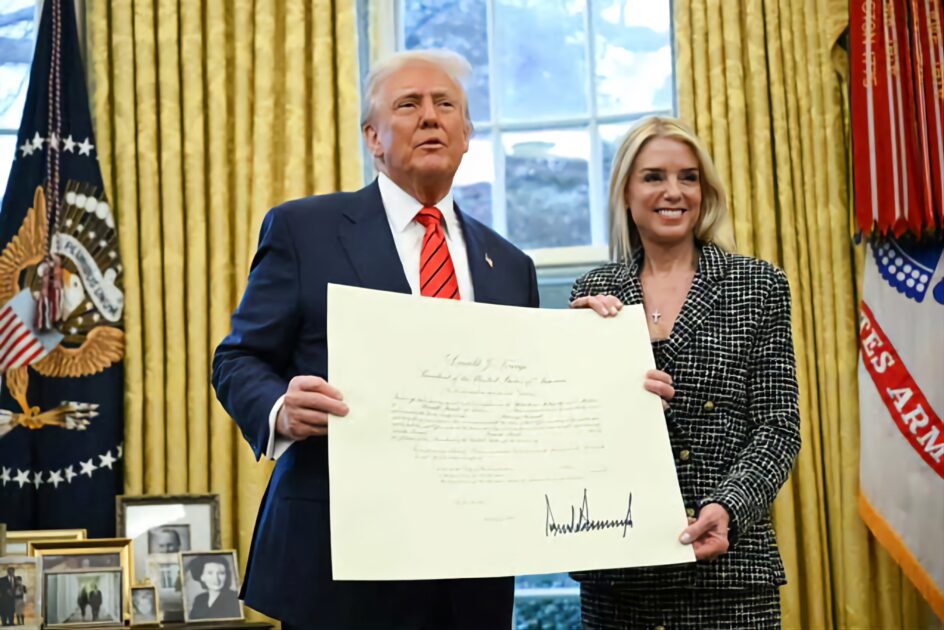
Targeting Alleged Bias in Federal Agencies
Trump singled out several federal institutions that the task force would scrutinize, including the Department of Justice (DOJ), Internal Revenue Service (IRS), and the FBI.
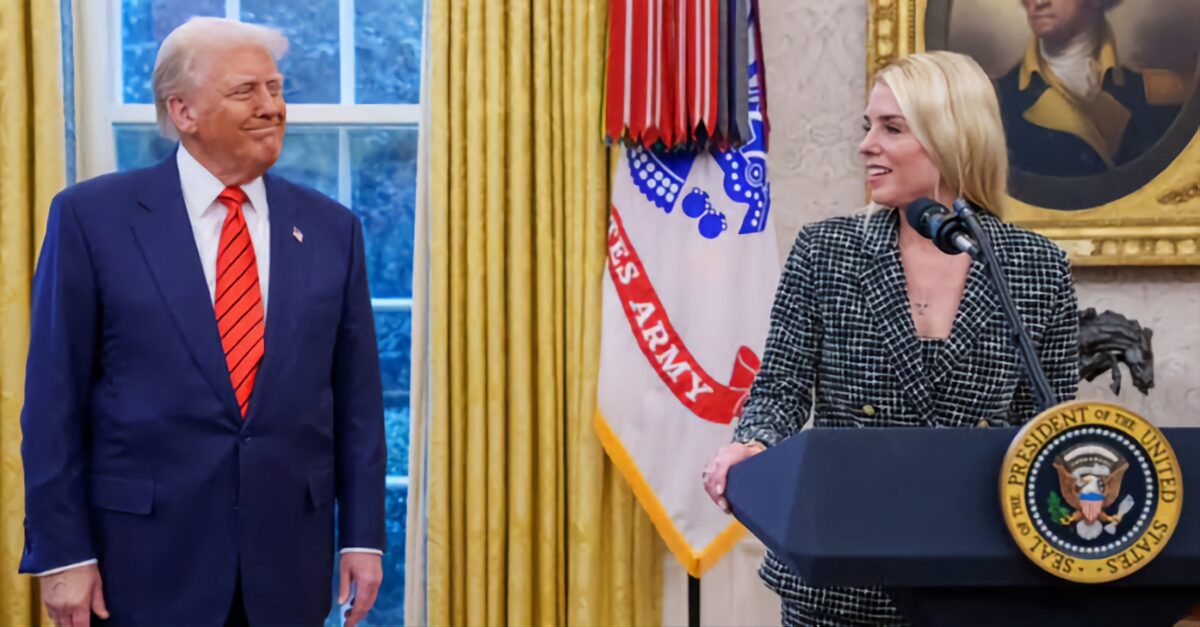
“The mission of this task force will be to immediately hold all forms of anti-Christian targeting and discrimination within the federal government accountable,”
he declared.
Bondi, he added, would also work to prosecute anti-Christian violence and vandalism while ensuring religious freedoms are upheld nationwide.
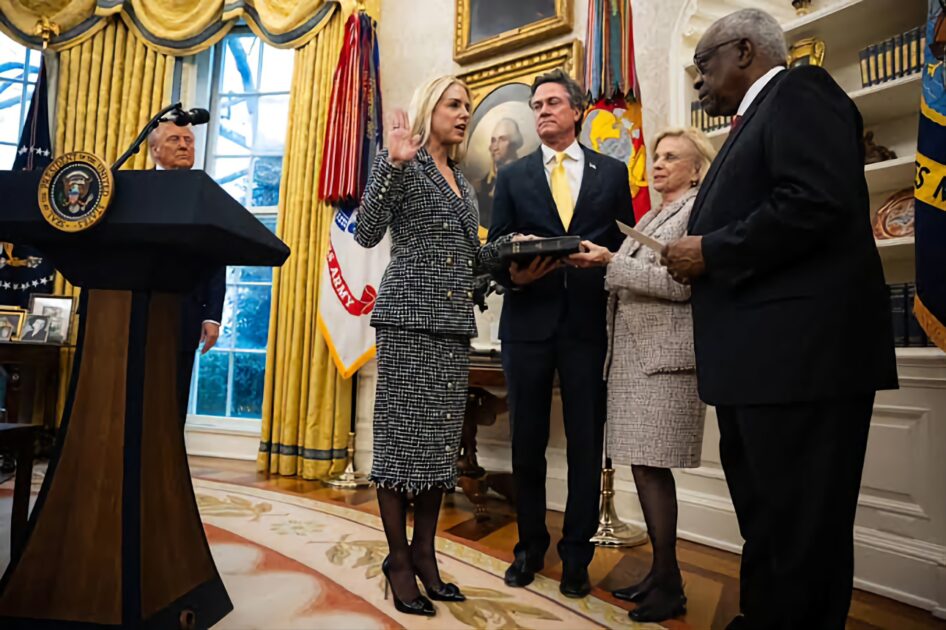
Debate Over Legal and Constitutional Concerns
The announcement has already sparked debate over the separation of church and state. Critics argue the move could blur the lines between government and religion, violating the First Amendment’s establishment clause, which prohibits the government from favoring any particular faith.
Rachel Laser, president of Americans United for Separation of Church and State, warned that the task force could be used to justify discrimination under the guise of religious freedom.
“This task force will misuse religious freedom to justify bigotry, discrimination, and the subversion of our civil rights laws,”
Laser said.
Andrew Seidel, a lawyer with the Freedom From Religion Foundation, echoed similar concerns, calling the move an attempt to reassert Christian dominance in government.
“Christians are still the majority in this country. They are overrepresented in Congress and almost every other government body,”
Seidel posted on X.
“This is about Christian Nationalism, not persecution.”
Religious Revival After Assassination Attempts
During his speech, Trump reflected on how his faith had deepened following two failed assassination attempts last year.
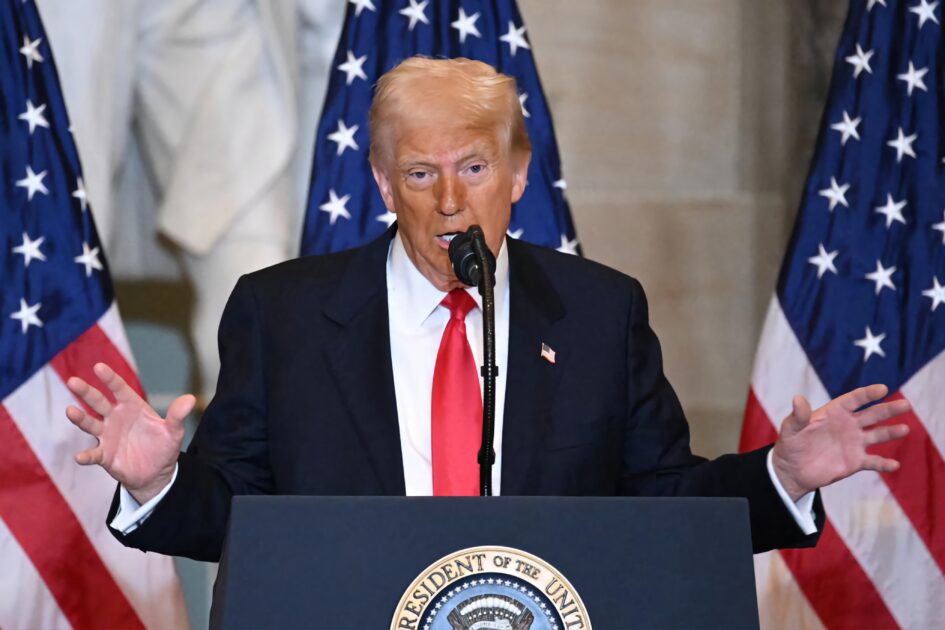
“I feel even stronger,” he said. “I believed in God before, but now, I feel much more strongly about it. Something happened.”
Later, at a second prayer breakfast hosted by a private group, he added,
“It was God that saved me.”
Trump And The Religious Leaders
Trump’s relationship with religious leaders has been turbulent. Following his second inauguration, he attended a sermon by Reverend Mariann Budde at the Washington National Cathedral, where she called for compassion for LGBTQ+ individuals and undocumented immigrants.
Trump later slammed Budde on his Truth Social platform, calling her a “Radical Left hard-line Trump hater.”
His administration has also faced criticism from Catholic leaders, including some who oppose his immigration policies. Vice President JD Vance, a Catholic, has clashed with top U.S. clergy over the removal of churches from a list of locations previously protected from immigration enforcement.
Religion and Politics: A 70-Year Old Tradition
The National Prayer Breakfast, first attended by President Dwight D. Eisenhower in 1953, has long been a stage for U.S. presidents to discuss faith and governance. Trump’s address this year, however, underscores the growing political and cultural divisions over religion’s role in government.
As the debate unfolds, Trump’s latest move signals his continued alignment with evangelical voters, a key base in his presidency and political future.





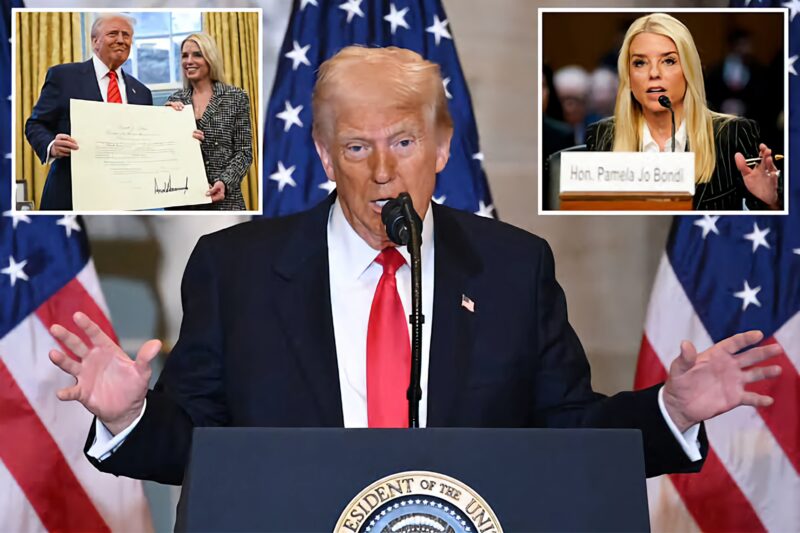
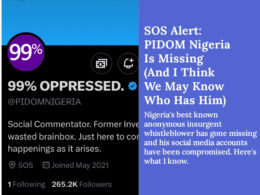



Join our Channel...